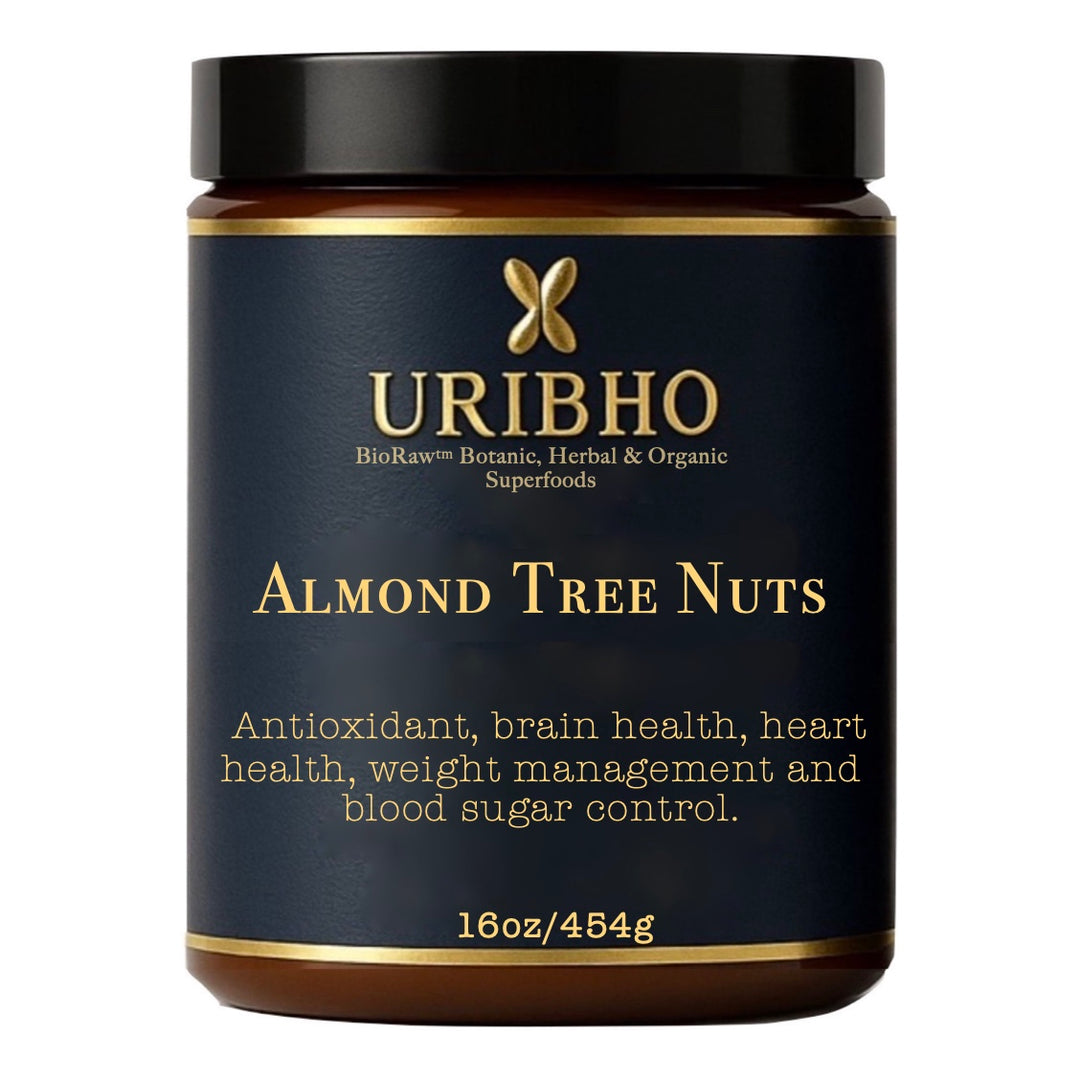
- En stock
- En rupture de stock, expédition prochainement
Amandes BioRaw™️
Amandiers
Source
Les amandes sont les graines comestibles de l' amandier (Prunus dulcis) , qui appartient à la famille des Rosacées . Les amandes que nous consommons ne sont pas de véritables noix, mais des graines enfermées dans une coque dure, que l'on trouve à l'intérieur du fruit de l'amandier.
2. Origin
-
Région d'origine : Les amandes sont originaires du Moyen-Orient et de l'Asie du Sud , notamment de pays comme l'Iran , l'Afghanistan et les régions environnantes.
-
Culture actuelle : Le premier producteur mondial est les États-Unis , et plus particulièrement la Californie , qui fournit plus de 80 % des amandes consommées dans le monde . Parmi les autres producteurs figurent l’Espagne , l’Iran , l’Australie et l’Italie .
3. Avantages
Les amandes sont un aliment riche en nutriments et présentant de nombreux bienfaits pour la santé :
Valeurs nutritionnelles (pour 28 g/1 oz, soit environ 23 amandes) :
-
Calories : ~160
-
Protéines : 6 g
-
Matières grasses saines : 14 g (principalement mono-insaturées)
-
Fibres : 3,5 g
-
Vitamine E : 37 % des AJR
-
Magnésium : 19 % des AJR
-
Calcium : 8 % des AJR
Principaux bienfaits pour la santé :
-
Santé cérébrale : Riche en vitamine E et en graisses saines, favorisant les fonctions cognitives.
-
Santé cardiaque : Contribue à réduire le cholestérol LDL (« mauvais ») et à améliorer le cholestérol HDL (« bon »).
-
Gestion du poids : Riche en fibres et en protéines, qui favorisent la satiété.
-
Contrôle de la glycémie : Faible index glycémique, bénéfique pour les diabétiques.
-
Antioxydants : Combattent le stress oxydatif et l'inflammation.
4. Utilisation recommandée
Apport quotidien :
-
La quantité recommandée typique est de 1 once (28 g) par jour, soit environ 20 à 23 amandes .
Modes d'utilisation :
-
En guise d'en-cas (cru ou grillé)
-
À ajouter aux salades, au gruau ou au yaourt
-
Réduites en farine d'amandes pour la pâtisserie
-
Transformé en beurre d'amandes ou en lait d'amandes
Remarque : Pour une option plus saine, choisissez des variétés non salées , grillées à sec ou crues .
5. Avertissements et notes réglementaires de la FDA
Risque lié aux aflatoxines :
-
Les amandes peuvent parfois être contaminées par des aflatoxines , des toxines produites par certaines moisissures. La FDA impose des limites strictes aux niveaux d'aflatoxines dans les noix afin de protéger les consommateurs.
Pasteurisation des amandes crues :
-
Aux États-Unis, la FDA exige que toutes les amandes étiquetées « crues » soient pasteurisées (à la vapeur ou par des traitements chimiques approuvés) afin d'éliminer les agents pathogènes potentiels comme la salmonelle . Cette réglementation est en vigueur depuis 2007.
Avertissement concernant les allergies :
-
Les amandes sont des fruits à coque et peuvent provoquer de graves réactions allergiques chez les personnes sensibles. Les produits contenant des amandes doivent être étiquetés en conséquence.
Allégations relatives à la santé :
-
La FDA autorise l' allégation de santé qualifiée suivante :
« Les données scientifiques suggèrent, sans toutefois le prouver, que la consommation quotidienne de 42 grammes (1,5 once) de la plupart des noix, comme les amandes, dans le cadre d'un régime alimentaire pauvre en graisses saturées et en cholestérol, pourrait réduire le risque de maladies cardiaques. »
Frais et politique d'expédition
| MODE D'EXPÉDITION | FRAIS DE PORT |
|---|---|
|
Standard |
GRATUIT |
|
Exprimer |
Forfait de 10 $ |
Destinations d'expédition
| DESTINATION | PROVINCES/ÉTATS |
|---|---|
|
Canada et États-Unis |
Territoires inclus |
|
Reste du monde |
Des frais d'expédition s'appliquent |
Délai d'expédition par service
| TYPE D'EXPÉDITION | DURÉE |
|---|---|
|
Rural et éloigné |
7 à 10 jours ouvrables |
|
Service standard |
5 à 7 jours ouvrables |
|
Exprimer |
1 à 3 jours ouvrables |
Délai d'expédition des vacances
| REÇU PAR | PASSER COMMANDE AVANT LE |
|---|---|
| Tous les jours fériés | À midi, 4 jours avant |

